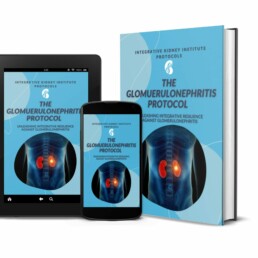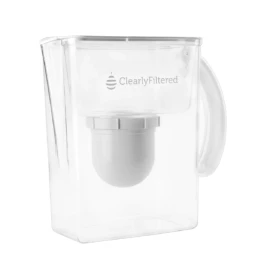As we delve deep into countless medical journals to uncover the latest on Integrative Medicine’s approach to kidney health, we are always reminded of the value of your time. Our commitment remains steadfast in curating and succinctly summarizing these vital studies for you. Welcome to the August Research and News.

Rising incidence of nephrolithiasis: A closer look at the vulnerable group
A study published in the Clinical Journal of the American Society of Nephrology examined the increasing prevalence of nephrolithiasis (kidney stones) in the United States, focusing on changes in incidence related to age, sex, and race.
The study, based on data from South Carolina between 1997 and 2012, found that the mean annual incidence of nephrolithiasis increased by 1% per year, from 206 to 239 per 100,000 persons.
The study revealed significant demographic shifts in the incidence of nephrolithiasis. The most notable increase was observed among 15-19-year-olds, whose incidence rose 26% per 5 years.
After adjusting for age and race, the incidence increased by 15% per 5 years among females, while it remained stable for males.
Among racial groups, the incidence among blacks increased 15% more per 5 years compared to whites. These changes led to a doubling of the risk of nephrolithiasis during childhood and a 45% increase in the lifetime risk for women over the study period.
Why This is Important?
The study’s findings underscore the growing prevalence of nephrolithiasis and reveal shifting risk patterns among various demographic groups.
The significant increase among young patients, particularly women, and among the black population suggests the need for targeted health interventions to manage and prevent this painful condition.
Understanding the drivers of this increase, whether lifestyle-related or otherwise, can guide public health strategies and clinical practices in the coming years.
Link Between vegetable and fruit intake frequency and mortality: Implication for chronic kidney disease patients
In a Japanese hospital-based prospective cohort study published recently, researchers have found a significant link between the frequency of vegetable and fruit intake and mortality rates in both patients with Chronic Kidney Disease (CKD) and those without the disease.
The study encompassed 2,006 patients and found that lower frequencies of vegetable and fruit intake were associated with a higher risk of death.
This is a particularly important finding as patients with advanced CKD are conventionally often discouraged from consuming high amounts of vegetables and fruits due to the potential risks of hyperkalemia.
However, this study has demonstrated that the frequency of vegetable and fruit intake is indeed associated with lower mortality, regardless of CKD status. The results remained significant even after adjusting for demographic factors, comorbidities, and CKD status.
Why This is Important?
These findings challenge existing dietary recommendations for CKD patients and have significant implications for dietary guidance, potentially prompting a reconsideration of current nutritional advice for CKD patients.
As adequate fruit and vegetable intake is a key part of a balanced and healthy diet, ensuring CKD patients can safely incorporate these food groups may help improve overall health outcomes.
However, this study could be more ideal if it identified the number of servings of fruits and vegetables the participants consumed every day.
Join us to end the kidney disease epidemic
Dietary vitamin E intake: A protective factor against kidney disease
A cross-sectional study from the NHANES database (2009-2016) involving 20,295 participants examined the relationship between dietary vitamin E intake and the prevalence of Chronic Kidney Disease (CKD) in US adults.
The study found a significant negative correlation between high vitamin E intake (8.770 mg/day) and CKD prevalence. This suggests that increased vitamin E intake might be a protective factor against CKD, evidenced by a nonlinear downward trend in the progression to very high-risk CKD as vitamin E intake increases.
The adjusted odds ratio (OR) for high vitamin E intake and CKD prevalence was 0.86, and a similar negative correlation was observed in very high-risk patients, where the OR was 0.51. These associations were found to be stable across populations in a subgroup analysis.
Why This is Important?
This research underscores the potential role of dietary vitamin E in the prevention and progression of CKD. It opens avenues for the exploration of dietary interventions in the management of CKD and raises the need for further investigation to understand the underlying mechanisms.
It also emphasizes the potential benefits of incorporating vitamin E-rich foods into dietary planning and nutritional guidelines for CKD patients. However, it’s important to remember that dietary changes should always be discussed with healthcare providers before implementation, especially in patients with chronic diseases.
Elevated uremic retention solutes in CKD: Exploring the role of diet and gut microbiota
This controlled feeding study compared serum and urine concentrations of uremic retention solutes (URS)—indoxyl sulfate (IS), p-cresol sulfate (PCS), and trimethylamine N-oxide (TMAO)—and gut microbiota composition in eight adults with moderate chronic kidney disease (CKD) to eight matched adults without CKD.
Results showed that fasting serum URS concentrations were 2.8 to 4.9 times higher in CKD patients compared to controls, indicating a substantial difference in how these metabolic waste products are processed in individuals with CKD.
Interestingly, the study found no significant differences in the composition of the gut microbiota between the two groups. This highlights that while CKD patients had higher levels of uremic retention solutes, it didn’t appear to significantly alter their gut microbiota under a controlled diet.
The study also found that the estimated glomerular filtration rate (eGFR), a measure of kidney function, was inversely related to each serum URS in the whole cohort. This means as kidney function decreased, serum URS levels increased, and vice versa. Within the CKD group, this relationship remained strong for IS and TMAO, but weakened for PCS.
Why This is Important?
This study provides further insights into the intricate relationship between CKD, dietary components, and gut microbiota.
The finding that CKD patients have elevated serum URS concentrations, despite similar gut microbiota compositions as non-CKD individuals, invites more research into how these metabolic waste products are processed differently in CKD patients.
This could lead to the development of dietary guidelines or therapeutic interventions to manage uremic retention solutes, thus improving outcomes in CKD patients.
Future studies are certainly needed to investigate if specific dietary components may differentially alter the microbiota and URS.
New Feature – Review Article of the Month
Novel mechanisms of salt-sensitive hypertension
A concise review in the journal Kidney International highlights recent research on “salt-sensitive hypertension.” It emphasizes the roles of the mononuclear phagocytic system in inflammation, the gut-kidney connection, and epigenetic factors.
The review also explores the impact of three specific drug types on salt-sensitive hypertension: sodium-glucose cotransporter 2 inhibitors, non-steroidal mineralocorticoid receptor antagonists, and aldosterone synthase inhibitors.
The authors suggest that in addition to kidney-focused mechanisms, it’s essential to consider vasoconstrictor processes in comprehending and managing this type of hypertension.
You can download the full PDF here.
Join here to receive FREE monthly updates on the latest research in Integrative Nephrology and tips on managing kidney disease straight to your inbox.
We would love to hear your feedback. Let us know what you think of these educational materials and if you like us to focus on specific topics. Please email us at info@inkidney.com.





